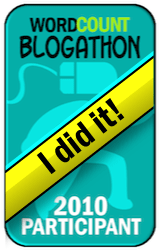Consider the phrase: I'll try. Have you ever said it to someone? Has someone ever said it to you?
When someone asks you to do something, and all you can say is, "I'll try," how committed do you think you really are to doing that task? What do you really mean?
Do you mean: If I have time? If I care enough? If I want to, I'll do it?
Earlier this month, I was speaking with a friend who was telling me how she needed help on a project that she's in charge of. And she was thrilled when, finally, she'd found a partner to help her on the job. She was feeling extremely grateful, she said, because she'd been in need of additional help for quite some time.
But, the person was coming on board at one of the worst times for her; my friend had too many other projects going on (Boy, I can relate to that!). She was concerned she wouldn't have time to train the new person. But she told me that she called and left a message, anyway, thanking her new partner for joining her, asking her to call back so they could at least chat a little before the real work starts.
Sadly, she said, this person did not return her call. She finally did e-mail, however, with updated contact information. So my friend returned the e-mail, telling her that she, in fact, needed her help earlier than expected, that she had to leave town, and only needed a few hour's worth of her time. She asked for what she needed, briefly explained why, asked if it was possible.
The person's response: "I'll try."
"I'll try" is not a response, I was thinking.
And while we were chatting about this, my friend was interrupted and had to go on to do something else. But I kept thinking about her story. Would you have a problem with this person's response? Does it sound like she's a willing partner?
I no longer try to interpret these kinds of responses myself, because I know "I'll try" is not a real response. It's not a yes; it's not a no. It's not a commitment, either way. So had it been me, I would have been tempted to want to take care of the matter myself, because I wouldn't want to have to beg for commitment. You either can or you can't help.
And I certainly wouldn't want to guilt someone into doing something they didn't really want to do. But I don't want to have to decipher it for them. I've been there. I don't think it works very well in the long run.
Here's why I know it's more hurtful than helpful:
When I was a child growing up, my mother was famous for saying, "I guess." Every time you asked a question, she would never give you a straight answer. She'd say, "I guess." Not only that, but she'd say it in the most miserable tone. I was a kid. I wanted what I wanted. So I opened that bottle of Pepsi and took a sip (These were the day when drinking soda all day long, as kids do today, was not an option.), I ate the last cookie in the box, or went to play with my friends across the street, whatever it was that I wanted. But I felt guilty doing it. I never quite knew if I was really supposed to or not. Would I get in trouble for this later? I sometimes wondered. Her wishy-washy responses always left me wondering. And I learned to tiptoe my way around her.
As a parent myself, I was adament about being clear with my answers. Perhaps some people are afraid of letting others down. Maybe that's why they won't say no when they mean no, and yes when they mean yes. But it's worse to be left in the dark and wonder what the real answer is. So when my kids asked for something, it was either a yes or no. I wanted to communicate clearly. They got their answer. No questions. No confusion. No worries.
But there have been times in my life when I've slipped and used similar half-hearted responses I learned from my mother. There have been times when I've been unclear about what I would accept or not accept, about what I would allow or not allow, about what I wanted or did not want. The problem with that is this: it leaves you vulnerable and with an excuse for not taking care of yourself or being fully responsible. It's completely noncomittal.
This is what my friend experienced. I'm not sure how she resolved the situation. We've not yet continued that earlier conversation.
As for me, I make a concerted effort to remove this phrase ("I'll try") from my vocabulary. I know from experience it's annoying, it doesn't really say anything, and it's certainly not helpful--to anyone. And if it were me in my friend's situation, I'd simply ask: Is that a yes or a no?
What about you?
Showing posts with label how to say no. Show all posts
Showing posts with label how to say no. Show all posts
Friday, January 30, 2009
Subscribe to:
Posts (Atom)











